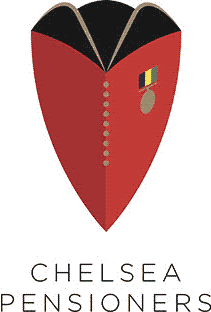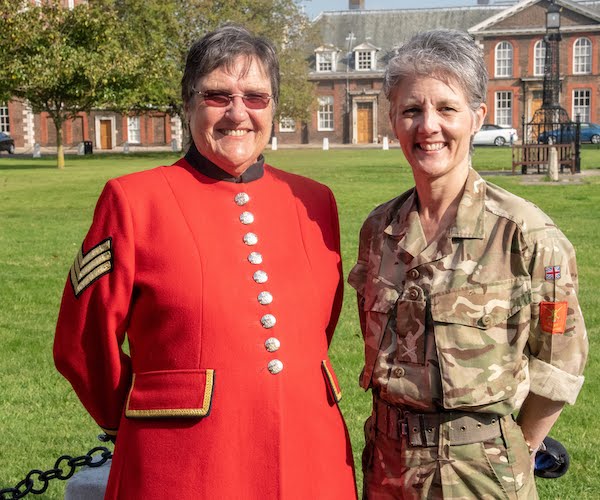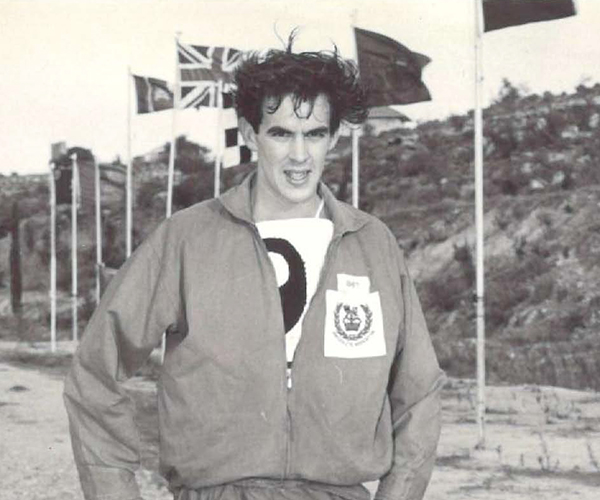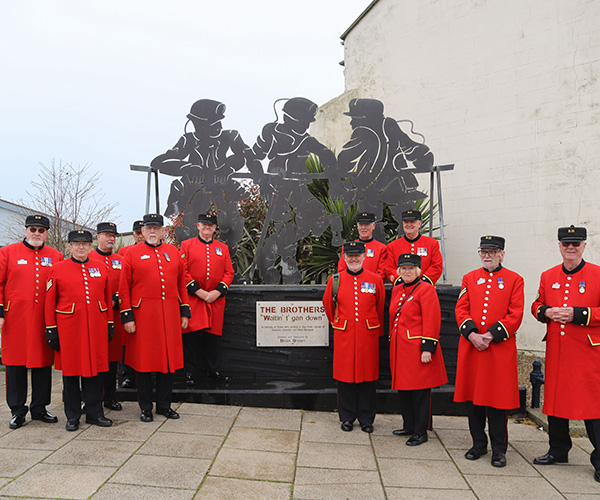A Conversation on Mental Wellbeing
17th May 2019
Chelsea Pensioner and D-Day veteran Bill Fitzgerald and serving soldier Bombardier Jim Elliott talk about their experiences and the changing attitudes towards mental wellbeing.
Although serving soldiers, like Bombadier Jim Elliott, have had a very different experience of the Army than veterans like Bill Fitzgerald, who landed on Gold Beach in Normandy on D-Day, they have both struggled with mental health problems. However, attitudes are changing and today’s military is working to dissolve the stigma that made recovery so much harder for Bill’s generation.
Watch Jim and Bill talk about mental health in this short film – and read on to find out more about their experiences and what helped their recovery.
“We were only 18 and we were in the war”
When teenage soldiers like Bill Fitzgerald were catapulted from the ordinary lives into the horrors of World War II, there was no recognition of the impact it would have on them. Bill’s regiment of young cadets joined the experienced soldiers of the Desert Rats:
“All us lads were only 18 years of age. Just imagine 18 years of age and we were in the war… They knew if we were to start a landing at D Day out there, we wouldn’t stand much of a chance, so we joined them.”
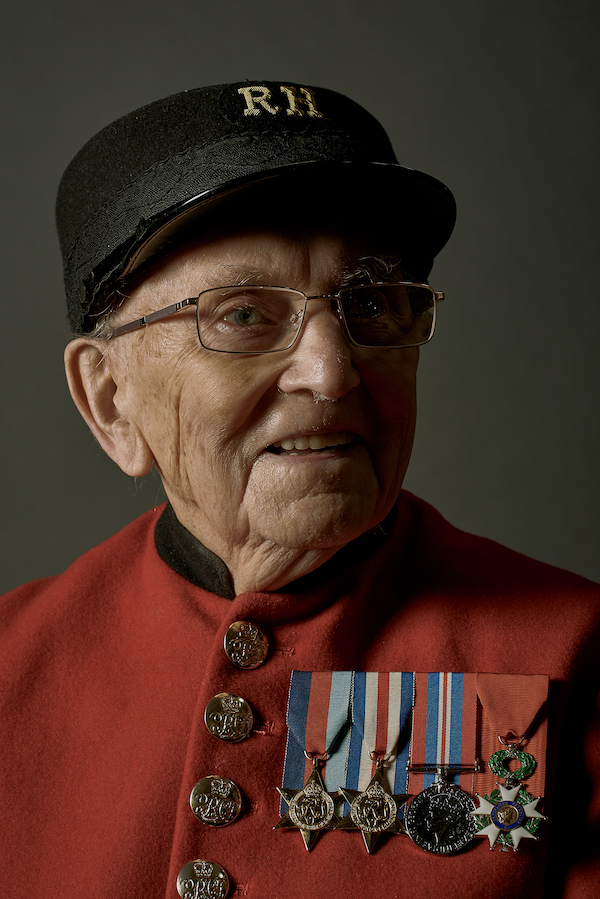
“What we saw when we got there… all the bodies floating in the water. There was a loss of about 50%. But you didn’t have time to feel. You were helping each other, hoping to get off that bloody beach.”
After two weeks advancing, Bill’s regiment stopped to rest in a forest, where they were “shelled to bloody bits”. Bill remembers being flung up in the air and hitting the ground. His leg was badly broken, shrapnel wounded his head – and he was flown home to England.
In hospital, Bill was encased in plaster to keep his leg and lower body from moving and wasn’t discharged for over a year. He remembers despairing and asking himself “Why didn’t I die?” He tried to trace some of his friends, many of whom had sustained horrific injuries:
“One had lost his hands, another chap lost his eye. Looking back, it’s like a dream. It took me a long time to get over it.”
“There was nobody to help us when we got home”
Despite the trauma soldiers like Bill experienced, there was no psychological support whatsoever:
“When we come home, there was nobody there to help us, not like there is today. All of a sudden, you’re on your own. I was lucky. I started going out with my girlfriend again and we got married in 1948. She was the one who looked after me and got me through you know. I had nightmares. She used to say to me, ‘You stand up in the night time, when you’re in bed, you’re climbing up the bloody walls’. Eileen was like a therapist or counsellor, looking after me all the time.”
Thanks to his wife’s steadfast support, Bill got through those dark days and is a positive and engaged member of the Royal Hospital community. He says that the activities and camaraderie mean that he can “really enjoy life. However, the memory of those days remains fresh in his mind:
“You never forget. You always remember the lads who never come back.”
“The stigma about mental health is diminishing”
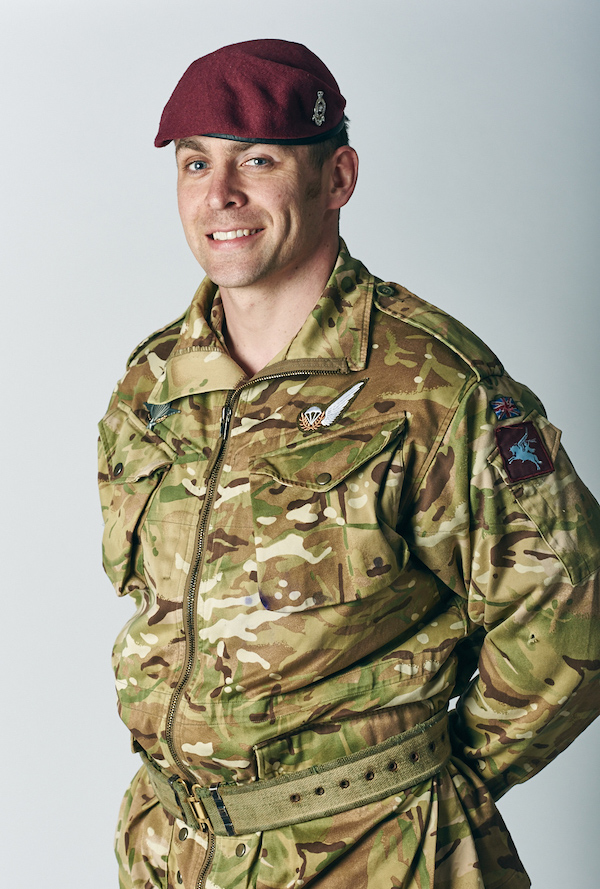
“The experiences that affected my mental wellbeing were a mixture of childhood trauma, difficulties as an adult, military life and operational service.”
But like Bill, it was the support of others that helped him through:
“The most debilitating thing about going through a tough time is feeling that nobody cares and I was really lucky that my friends noticed and cared. In the military, there’s a closeness because of adversity. I have 30 best mates. Bill’s generation were bonding to face an external threat – he talks about ‘we’, ‘us’, ‘our’, not ‘me’ – they got support from each other. He had a good woman behind him, setting goals for him.”
A change of attitude is the key difference between Jim’s experience and Bill’s, as Jim explains:
“The stigma about mental health is rapidly diminishing. Mental health is becoming something we can talk about – it’s credible because respected people who’ve had problems are speaking out. It’s not necessarily because of a traumatic event. Talking is important – it’s becoming more respected and understood, a less tragic beast because we can catch it early and nip it in the bud.”
As a trainer in the Army Mental Fitness team, Jim helps soldiers to develop psychological resilience:
“We hope to have a generation of soldiers knowing how to regulate their emotions, change negative thoughts to positive thinking, get better support, develop friendships, build a community within regiments and beyond, support each other and become more mentally resilient. Mental resilience leads to mental wellbeing, so it needs to be promoted.”
